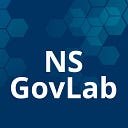Fellows are closing in on a month of prototyping with end users to receive feedback. Members of each team live across the province and have been testing with end users. After testing, fellows bring feedback to share with other team members to reflect and adapt their prototype.
Here are some common themes that fellows have raised in their learnings and they believe would be beneficial for future teams.
1. Don’t use a personal perspective: Fellows have admitted that they have created prototypes that suit their needs. It was beneficial for them to speak with end users of diverse backgrounds that have opposing viewpoints on what changes to our current system need to be made. Teams have found seniors are a diverse group based on age, wealth, race, etc., and how each of those effect each older person experience in Nova Scotia and views on what they need. Each of these variables effects the perspective of those who are giving feedback on a prototype. The first prototype may feel like it is the perfect solution, but it may be for only you.
2. Build a physical prototype: A physical prototype that is built during the two prototyping sessions has assisted in receiving end user feedback. Building the prototype creates a common understanding amongst group members on what the prototype is. A prototype leaves less for the end user to imagine and assumptions to create in their own mind. Even if there are fellows that live hours apart, take a picture of the prototype for those who don’t have it when testing.
3. Interview in multiples: When possible, bring a minimum two people to interview end users. A common benefit included getting multiple perspectives on feedback. Fellows have expressed that one fellow may interpret the feedback differently than another. When interviewing, fellows take notes on feedback to bring back to other team members, but this may result in missing important information. If the fellow is writing the whole time, visual cues will be missed. Two fellows interviewing allows for one to write while the other can ask questions and pick up on visual cues that can be written after
4. Be open minded: Throughout the process of prototyping, fellows chose their idea that they believed was the most innovative and likely to succeed. They were encouraged to be open to all feedback (good or bad) that they received. If one idea wasn’t popular among end users, then they were encouraged to make the adaptations that were needed or to go along a different route and create another prototype. If one idea doesn’t work, there are still limitless possibilities to prototype. Common quotes from fellows included “there will be times things don’t go your way” and “you won’t do everything the way you planned to.”
The prototyping and testing phase can be challenging if you feel connected to a solution you feel will make a big social impact. Your first prototype isn’t likely to be successful, but you get feedback that leads to something better. Fellows hope this advice is beneficial for cohorts to come with NS GovLab.
Keep up-to-date by following us on Medium and on Twitter (@NSGovLab).
